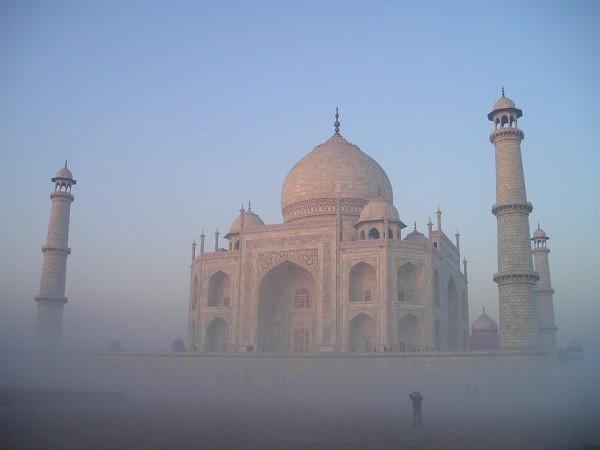
A question on the world's most famous building which has long been doing the social media rounds could very well find an answer, hopefully from expected quarters. The Taj Mahal, perceived as the symbol of undying romance has also been an undying bone of contention for its origins, its architectural influences, the identity of the person who actually built it, the identity of its designer, the fate of its worforce, or why it was built at all, among others.
The most contentious of all has been the question whether the supposed monument to Mumtaj Mahal, the wife of fifth Mughal emperor Shah Jahan, was built on the foundation of an ancient Shiva temple. The Central Information Commission (CIC) is now stepping into the minefield by directing the Union Culture Ministry to clarify its stand on whether the Taj Mahal is a mausoleum built by Shahjahan or a Shiva temple gifted to the Mughal emperor by a Rajput king.
The question, forwarded as an alternative narrative of history by some claiming to be historians and the subject of various court cases, reached the CIC through an RTI plea and is now at the culture ministry's door, says a PTI report published on Thursday.
The RTI applicant, B K S R Ayyangar, had approached the ASI through an RTI application asking whether the monument in Agra was the Taj Mahal or 'Tejo Mahalaya', the PTI report said.
In a recent order, Information Commissioner Sridhar Acharyulu recommended that the ministry give information on its stand on the cases related to the provenance of the Taj Mahal, and on the frequent claims based on historian P N Oak and advocate Yogesh Saxena's writings.
"The Commission directs the Archaeological Survey of India to share those copies with the appellant at additional fee constituting the cost of copying, before August 30, 2017," he said.
B K S R Ayyangar, had in his RTI application, said, "Many people stating that Taj Mahal is not Taj Mahal and it is Tejo Mahalaya: that this was not constructed by Shahjahan, but was gifted by Raja Maan Singh; hence give the facts as per ASI reports-details with evidences," he said.
When the ASI told him that no such record was available with it, Ayyangar demanded among other records, the "construction details" of the 17th century monument, including its rooms, hidden rooms and the rooms which were closed to him citing security reasons, the PTI report said.

'Unreasonable to demand opening of closed rooms'
Acharyulu noted what he expected from his RTI application was research and investigation into the history of the Taj Mahal, which is beyond the purview of the RTI Act and ASI. He suggested that the ministry put to rest the controversy and clarify doubts about the history of the white marbled mausoleum, considered one of the wonders of the world. He noted that some cases in courts, including the Supreme Court, were dismissed while some were pending.
He said the Archaeological Survey of India (ASI), being a party in some cases, must be holding the counters (affidavits) filed on its behalf and by the culture ministry, PTI said in its report.
"It is unreasonable to ask for opening of closed rooms, bringing out hidden things, and for excavations underneath the protected monument of Taj Mahal and rewriting the history under an RTI application," Chief Information Commissioner Sridhar Acharyulu was quoted as saying in his order.
"Before Taj Mahal was declared as such protected monument, people should have filed their objections. Those who wanted Taj Mahal to be declared as Tejo Mahalaya should have filed objections," he stated in his order.
The information commissioner added that ASI had to inform the appellant whether any excavations were done in the protected site of the Taj Mahal and, if so, what was discovered.
"Decision regarding excavation has to be taken by the concerned competent authority and Commission cannot give directions to excavate or open the hidden or closed rooms in Taj Mahal," PTI quoted Acharyulu as saying.






